Each month, we provide up to £2,000 in grant money to early career researchers in quantitative disciplines.
Our aim is to support and assist PhD students and postdocs conducting research, particularly with costs that may be difficult to get funding for elsewhere, for example, travel for those who are caring for children, or expenses for volunteer work related to research.
Learn more about our grant programme, including how you can apply and the work we support.
Read on to hear from our latest winners, their research and how our grants will aid their work.
June grant winners
Robert Tjarko Lange (Technical University Berlin)

“I am a final year PhD student working on Evolutionary Meta-Learning at the Technical University Berlin.
“My research aims to leverage tools from black-box optimization in order to discover new algorithms parametrized by neural networks. These settings can be notoriously hard to optimize using higher-order gradients. Evolutionary optimization, on the other hand, provides a means to tackle such challenging optimization problems in a biologically inspired fashion.
“My G-Research grant will be used to attend the GECCO 2023 conference in Lisbon, where I will present work on discovering attention-based Evolutionary Optimizers. One of my papers has been nominated for the best paper award and I am looking forward to further discussing some of my open-source contributions (evosax) with the community. I am very grateful for the support and hope that the grant will facilitate the communication between the Machine Learning and Evolutionary Computation communities.”
Fanny Lehman (Laboratoire de Mécanique Paris Saclay / CEA, France)
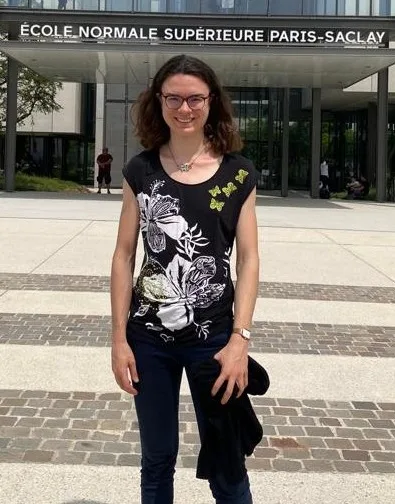
“I am a PhD student in applied mathematics and machine learning applied to seismology. My research focuses on designing meta-models to replace numerical solvers of seismic wave propagation and thus, drastically reduce the computational cost of seismic simulations.
“These developments take place in the emerging field of Scientific Machine Learning (SciML) that interfaces machine learning and traditional numerical simulations to solve Partial Differential Equations more efficiently. My work uses a specific type of neural networks developed in SciML and called Fourier Neural Operators to predict the ground motion generated by earthquakes.
“Thanks to the generous support of the G-Research grant, I will be able to attend the NeurIPS 2023 conference where I hope to present my work on the database I use to train my models.”
Linnéa Gyllingberg (Uppsala University)
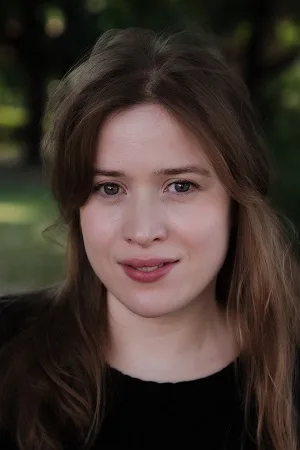
“I am a final-year PhD student in applied mathematics at Uppsala University, Sweden. My research focuses on developing and analysing mathematical models and methods for various biological applications. I use dynamical systems, network models, agent-based modelling, as well as statistical methods, to understand collective behaviour, decision-making, and complex systems.
“Thanks to the G-Research grant, I am able to balance my life as an early career researcher with my role as a mother of two toddlers. I will use the grant to have my two children and husband accompany me on a research visit to the University of California, Los Angeles.”
Ayushi Arora (University of Edinburgh)
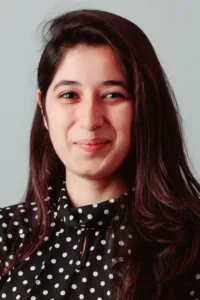
“I am trying to develop a solar photocatalytic water treatment in a sustainable and affordable manner. This technology has the potential to provide healthy drinking water to rural and non-electrified areas of the world.
“The G-Research grant has supported me to undertake an academic research placement at EPFL, Switzerland where I will work to develop a statistical modelling approach to design the photocatalytic reactors functioning with stochastic water arrival in time and magnitude. This placement will enable me to explore the statistical research opportunities in my field for which I am extremely thankful to G-Research for its support.”
Daniel Lengyel (Imperial College London)
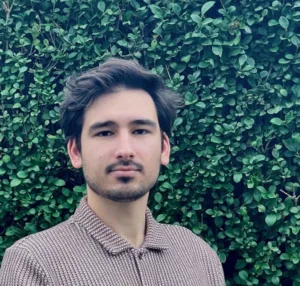
“I am a PhD student in my final year at Imperial College London in the Department of Computing. My current work focuses on understanding how the selection of data influences machine learning models.
“In many situations, obtaining data is costly in both time and money. Being able to describe which data-points contribute to the construction of a model and how they should be sampled is hence crucial. Therefore, one of my long-term goals is to work towards a characterization of data so practitioners can immediately understand the type of data they are working with and hence allow them to better develop and decide on the most suited methods and tools for their respective application domain.
“I am very thankful for the G-Research grant as it enables me to attend the ICIAM conference in Japan, the premier conference in applied and industrial mathematics. At the conference I will be presenting my work on optimal data-point selection for gradient estimation techniques. I look forward to discussing possible extensions and collaborations with leading experts to work towards a better characterization of data.”
Julia Rau (Chalmers University of Technology)
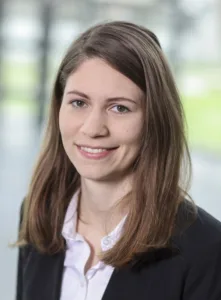
“As a materials scientist, I am interested in how materials behave in various environments and under all kinds of conditions and loads. I investigate why some knee implants fail after a very short time implanted in the human body. With high-resolution analysis techniques, I can get a glimpse of what is going on at their surfaces and learn more about the underlying mechanisms.
“The G-Research grant allows me to present my latest work on the FEMS EUROMAT, the premier international congress for the latest advancements in materials science and technology. Moreover, it covers childcare costs, since I will bring my two-year-old daughter to the conference.”
Eleonora Bernasconi (University of Hertfordshire)
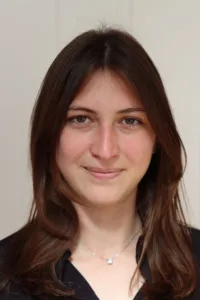
“I am a computational neuroscientist focusing on the cerebellum. My PhD project involves testing the feasibility of non-invasive neurostimulation as a treatment for cerebellar disorders using a computational approach.
“The G-Research grant will allow me to attend the Advanced Scientific Programming in Python summer school, where I aim to enhance my coding skills. I am enthusiastic about improving the readability of my code to ensure that future researchers can easily utilize it. Additionally, I am eager to learn techniques for developing code more efficiently, enabling me to expedite my research discoveries.”
Juncal Arbelaiz Mugica (Princeton University)

“I am a Schmidt Science Postdoctoral Fellow at Princeton University and recently completed my PhD in Applied Mathematics at MIT.
“My research interests are in optimal decentralized control and estimation of large-scale and spatially distributed dynamical systems. Supported by the G-Research grant, I will attend the Modeling and Optimization: Theory and Applications conference, where I have been invited to discuss my doctoral research at the session, called Applications of Optimization to Dynamical Systems.”
Congratulations to our grant winners.
